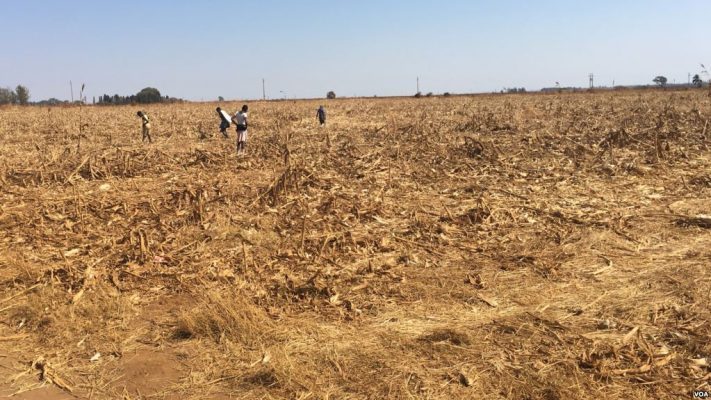Nqobile Bhebhe, Zimbabwe
A senior Land official in Zimbabwe has said vast tracks of land is lying idle a development that is forcing the county to import horticultural crops that can be grown locally.
Zimbabwe was once a net food exporter but has been battling to produce enough over the years since government parceled large high-production white-owned farms to landless blacks in 2000.
Matabeleland North Department of Agricultural Technical and Extension Services (Agritex) provincial officer Dumisani Nyoni bemoaned the underutilization of land.
Nyoni attributes the trend to lack of funding.
“We are looking forward to maximization of production at farms. If you move around you will realise that most farms are underutilized .
“Of course there has been market challenges and also issues of funding — seasonal long term loans for agriculture development” he told state media.
In March, Lands, Agriculture and Rural Resettlement Deputy Minister Davis Marapira threatened to repossess underutilised farms in the next two months.
Marapira said farmers should start being productive or face the consequences.
“In the next two months I will be going around farms and if I find that there is no good farm manager and the owner is absent, I will repossess the farm” Marapira said.
“As government through the Ministry of Lands, when we allocated farmers land we had two issues, the farmer had to be on the land or hire a good farm manager, but the majority of us are not on the land and do not have good managers ,”
However, such warnings by top government officials are not new.
Several threats to repossess idle vast tracks of land have previously been made with no action on the ground.
According to Nyoni, if farming was to revive the economy “there is a need to look at horticultural crops with a view of value addition and going to fruit trees you will realise we are importing a lot of fruit juices, why not grow fruit trees to the extent that our production supports value addition, which is agro-processing that’s actually creating more employment and market for the produce that will be coming from the farmers,”








